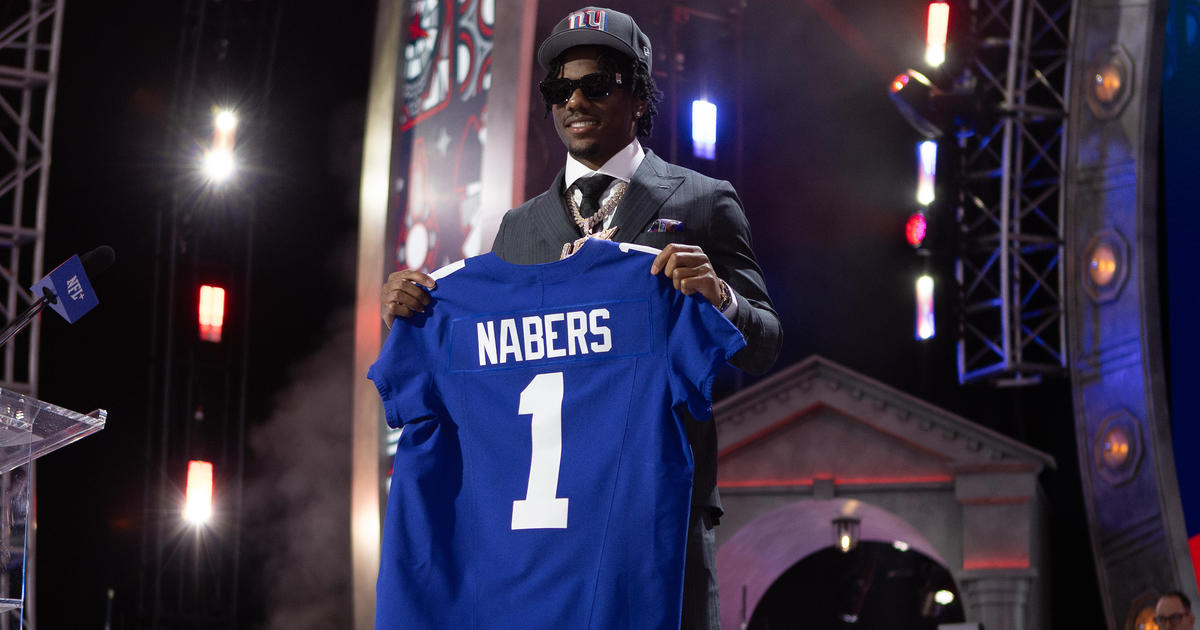Black History is American History: Schomburg Center, other institutions preserve New York City's story
NEW YORK -- Here at CBS2, we recognize that Black history is American history.
This month, we honor and celebrate the contributions of African Americans throughout history.
Here in New York, the history of Black History Month runs deep and efforts to recognize and elevate people and events that impacted the past continue to strengthen and evolve in the present.
Any discussion of Black history has to start at the Schomburg Center for Research and Black Culture on Malcolm X Boulevard in Harlem.
"It is the repository of 11 million items that document the histories and cultures of people of African descent, and we've been doing this for nearly 100 years now," director Joy Bivins said.
Bivins says it was the gift of more than 10,000 books, plus art and artifacts, from Arturo Schomburg that helped found the institution and coalesce the humanity and history of a people thought to have none. That was in 1926, the same year that noted scholar Carter G. Woodson founded Negro History Week. It was 50 years later that President Gerald Ford proclaimed Black History Month.
"We celebrate Black history all year long. We're at forefront and center of the stories of Black people at all times," Bivins said.
New York's history of Black history is recognized as soon as you step into the Schomburg. A cosmogram pays homage to the distinguished Harlem poet Langston Hughes -- his words inscribed, and some of Hughes' ashes interred beneath. Every corner is touched by history. A simple bench, donated by Toni Morrison, the "Beloved" author who lived here in the 1960s, commemorates the absence of markers for enslaved people. Esteemed New York photographer Howard Dodson's work is celebrated with stunning portraits of both street life and local luminaries. And in a new undertaking, rare daguerreotypes from the 1850s are being made available to the world with their digitization.
"That's particularly important when we think about African-American history, where so often we think these bonds were ruptured by slavery. But in fact, we have physical proof that people were beloved," said Dalia Scruggs, curator of photographs and prints at the Schomburg.
"It furthers the mission of Arturo Schomburg, and his initial founding of the Schomburg Center to collect, preserve and share history of the African diaspora," digital curator Kimberly Henderson said.
READ MORE: Bessie Coleman, first Black female aviator, inspiring students in Brooklyn
At the Museum of the City of New York, Big Apple and Black history converge in an installation that recognizes the breadth of local activism.
"We're bringing things up from the 1800s to the present for making connections between past and present," said Sarah Seidman, curator of social activism.
Seidman took CBS2 through the exhibit, which showcases New York's history of activism with powerful objects, like a slave's bill of sale, and documents that freed them.
Centuries later, New York was a vital hub for the fight for civil rights, with a landmark fundraiser for the March on Washington.
"Just the fact that the March on Washington for jobs and freedom was planned in New York," Seidman said.
Also on view, artifacts from history-making marches protesting the killing of Eric Garner, and the Black Live Matter movement.
READ MORE: All-Black squash team from Harlem makes history
New York's commemoration of Black history has upped its profile on the streets -- if you know where to look. The TD Bank on Montague Street has a plaque commemorating the Brooklyn Dodgers office where they signed Jackie Robinson's contract. There are designations for churches thought to be part of the Underground Railroad, like Plymouth Church in Brooklyn Heights; a Tribeca coffee shop is said to be the site of the first Black-owned bookstore in New York; Hughes' home is memorialized with a plaque, to name just a few.
History is also noted by what's no longer there. The statue of Teddy Roosevelt removed from the American Museum of Natural History because of its depiction of Black and Native Americans as racially inferior. Thomas Jefferson's statue stood in City Hall until public outcry regarding his vast slave ownership forced its removal. It's now housed at the New York Historical Society.
"There are definitely chances that we've had as a museum to bring in monuments that used to stand elsewhere, and help to give them a new interpretation. So that, hopefully, with a change of context, we really can understand that history in a richer and new way," said Dominique Jean-Louis, associate curator of historical exhibitions at the New York Historical Society.
Jean-Louis noted the significance of Black History Month in New York with larger pieces, and some extraordinary smaller ones as well.
"We have the Bible from the Colored Orphans Asylum as a racist mob burned down the asylum. One of the evacuating children took a second to save the Bible," Jean-Louis said.
Also unique to Black History Month in New York is the production of "Color Between the Lines" at the Irondale Theater in Brooklyn.
"It's a musical project, where we discuss the little-known history of the abolition movement in Brooklyn, highlighting those names and voices that we don't know about," actor and songwriter Michael-David Gordon said.
Gordon said the aim is to bring attention to local abolitionist efforts, and embrace Black history here as a daily dynamic.
"That moment connects to this day, where you'll see protest, where you'll see signs, 'Don't Shoot," "I Can't Breathe, "I'm A Human Being." Those messages and words have not changed in a lot of ways," Gordon said.
And there's so much more. There are great stories to discover all over the city, and we'll have more of them on our streaming channel CBS News New York.




